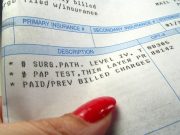Many people search for online RN programs, but the truth is you cannot earn an RN designation simply by earning a nursing degree.
To become an RN, you must first earn a nursing diploma or degree. Then you need to pass a national licensing examination, the NCLEX-RN. Once you pass this exam, you will have earned a registered nursing (RN) license.
The RN designation refers to a professional license rather than graduation from a specific degree program.
What is a Registered Nurse?
A registered nurse is a healthcare professional who has graduated from a nursing program, possibly online, and passed the the national licensing exam.
A registered nurse, often referred to as an RN, treats patients and helps educate the public about health. They are front-line providers who give emotional support to patients and their families. RNs also monitor patients’ medical symptoms, perform diagnostic tests and help with patient follow-up and rehabilitation.
RNs provide direct patient care or, with advanced experience and education, take on the following roles:
- administration
- case management
- clinical research
- develop patient care procedures
- teach in nursing programs.
A registered nurse’s primary responsibilities are to provide care and educational resources to patients and their families.
Registered nurses often work in teams with other physicians and medical specialists in a wide range of healthcare settings including hospitals, homes, schools, community centers, or other non-medical environments. RNs often supervise other nursing professionals like licensed practical nurses (LPNs), unlicensed assistive personnel and nursing students.
Nursing is considered to be a very stressful job because of the direct involvement with suffering, high-pressure situations, emergencies and life or death decision making.
The field of nursing is growing exponentially and the occupational outlook for nursing jobs in the United States is excellent according to the Bureau of Labor Statistics. Many states are currently experiencing a shortage in nurses, while other states have a surplus.
Because of changes in the American healthcare system due to the Affordable Care Act, many new patients are expected to enter the system. The extended lifespan of the Baby Boomer generation is also increasing the need for more nursing and medical professionals.
Special preference may be shown to registered nurses who:
- are fluent in another language
- have years of professional experience
- specialize in certain kinds of care, diseases, age ranges, or parts of the body
- have earned a master’s in nursing.
How to Become an RN Online
There are three steps to becoming a registered nurse:
- Complete the minimum required nursing education—usually a certificate or diploma.
- Work at a healthcare facility under an RN to gain supervised clinical experience.
- Pass the national RN examination (NCLEX-RN exam).
Online RN Programs
More than one online nursing degree program can help you become an RN and prepare you to sit for the licensing exam.
RNs may follow one of three educational paths:
- Earn a diploma or certificate from an approved nursing program
- Complete an associate degree in nursing (ADN)
- Earn a Bachelor’s of Science in Nursing degree (BSN)
Many RNs launch their careers by earning nursing diplomas or certificates and becoming a LPN (licensed practical nurse). Once working, LPNs can go on to complete the coursework needed for an associate’s degree to become an RN. Testing out of required courses can significantly speed up this process.
Some opt to complete an online associate nursing program before taking the nursing exam and beginning to work.
Changing Careers to Become a Nurse
If you have no nursing experience and want to enter this field, nursing school at a local community college may be your best option. Many community colleges offer hybrid or blended online nursing aide programs, nursing diplomas and associate’s in nursing that prepare students to be a Licensed Nurse Practitioner (LPN).
Online LPN programs prepare students to sit for the NCLEX-NP exam and lay the foundation for future education needed for an RN designation.
LPN programs, generally offered at community college nursing schools, combine nursing theory courses with local supervised placements inside hospitals and nursing homes.
Sometimes online LPN programs include coursework required to sit for the the NCLEX-RN exam. These programs allow students to gain different levels of licensure as they work their way through the program.
Nursing students must complete clinical hours and take exams in person, but can complete many core courses, such as anatomy, online. Many online nursing classes also use virtual simulation to enrich learning.
Similarly, Certified Nursing Assistants (CNAs) gain on-the-job experience and lower levels of licensure before pursuing an RN degree online.
Online LPN programs take, on average, one year to complete. LPN to RN bridge and associate nursing degree programs take two years.
- Allen County Community College Associate of Science in Pre-Nursing
- Excelsior College Associate of Science in Nursing
For those who have a bachelor’s degree, but their major was not in nursing, there are special programs that allow career changers to earn a RN degree online. These special nursing degrees are often referred to as online accelerated BSN programs or second degree BSN.
Online nursing bachelor degrees are the fastest route to a BSN for career changers who already hold a bachelor’s degree with a non-nursing major. Few online nursing degree programs, however, admit nurses who do not already hold a valid RN license.
Online nursing master degrees are sometimes open to individuals who hold a bachelor’s in a field other than nursing. Explore an online nursing degree at the master’s level if you already hold a bachelor’s and want to move into nursing without repeating a formal new nursing bachelor’s degree online.
RN Licensure and Certification
Once an individual has completed education and clinical requirements, they must pursue licensure to become a registered nurse.
Though licensure requirements do vary by state, passage of a state-approved training program and the National Council Licensure Examination (NCLEX-RN) are almost always needed.
The NCLEX-RN exam covers:
- psychosocial and physiological integrity
- health promotion
- infection control
- fundamental nursing skills.
RNs can advance their careers by earning certifications in specialty areas. The American Nurses Credentialing Center, a subsidiary of the American Nurses Association, offers a variety of certifications and specialties ranging from General Nursing practice to Public Health Nursing and Pediatric Nursing.
























